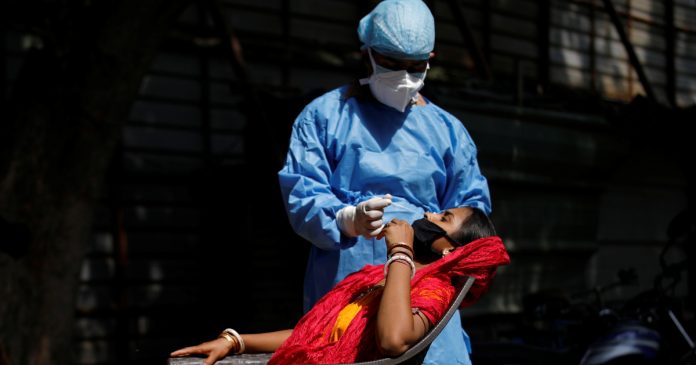[ad_1]
More than half of capital’s 20 million inhabitants exposed to coronavirus and developed antibodies, serological study shows.
More than half of New Delhi’s 20 million inhabitants may have been infected with the coronavirus, according to a government serological survey whose findings echoed earlier private-sector research.
India has reported 10.8 million COVID-19 infections, the most anywhere outside the United States.
But the survey, conducted between January 15 to January 23 and based on some 28,000 samples, suggests the true figure among its 1.35 billion population is dramatically higher and approaching herd immunity levels, when the majority of the population becomes immune to the disease.
“In the fifth sero survey done in the national capital of Delhi, [coronavirus] antibodies have been detected in 56.13 percent of the city’s population,” Delhi state’s Health Minister Satyendar Jain said on Twitter after the report was published on Tuesday.
“The last survey found 25-26 per cent seroprevalence. This means Delhi is inching toward herd immunity. Cases are also declining at less than 200 per day and low positivity rates. But I would appeal not let your guard down. Keep your masks on,” Jain told reporters.
Officially, Delhi has recorded 635,257 cases – just over 3 percent of its population – the difference showing that a large number of infected people are asymptomatic, Delhi government officials said.
Separate tests done on more than 700,000 people across India by diagnostics company Thyrocare Technologies showed 55 percent of the population may have already been infected, its chief told Reuters news agency last week.
Health experts are divided over herd immunity. While some say it is only a matter of time before populations develop herd immunity, sceptics say an effective vaccination programme is necessary to stop the virus.
The World Health Organization says at least 60 percent to 70 percent of a population needs to have immunity to break the chain of transmission, though Indian officials have said a lower level can also slow the virus’s spread.
Jain said New Delhi had largely beaten COVID, and India’s daily cases and deaths fell to eight-month lows on Tuesday when the country registered 8,635 in the 24 hours prior.
Overall, it has reported 154,486 COVID deaths, giving the South Asian nation a relatively low fatality rate.
One factor behind that is the country’s low average age, medical experts say. Two rich states with relatively older populations – Kerala with 3,459 cases and Maharashtra with 1,948 – now account for nearly 70 percent of new infections.
India has vaccinated nearly 4 million people since mid-January when it started what the government touts as the world’s biggest immunisation campaign, which aims to inoculate more than 300 million people by July.
[ad_2]
Source link











